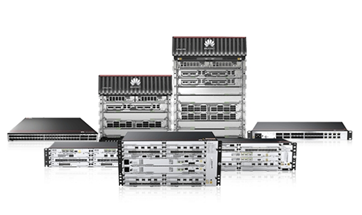Choosing the right enterprise router is vital for secure, efficient, and scalable business networks. Serving as the backbone of communication, these routers ensure seamless connectivity and data protection. With growing reliance on cloud services and remote work, enterprise routers must deliver robust performance and advanced features. This article highlights the key attributes of top routers, including essential features, connectivity reliability, and management tools, to help you choose a router that supports your business's growth and operational efficiency.

Security is a cornerstone of enterprise router functionality. The best routers are equipped with cutting-edge security protocols like WPA3 encryption, firewalls, and intrusion detection systems to prevent unauthorized access. Features such as Virtual Private Network (VPN) support and secure access control lists (ACLs) further enhance protection, ensuring that sensitive business data remains safe. Additionally, advanced routers integrate anomaly detection and threat mitigation tools, providing real-time protection against malware and cyberattacks. Enterprises can also benefit from built-in content filtering and user authentication systems, which safeguard against phishing and ransomware. These features help businesses maintain compliance with regulatory standards, ensuring data integrity and network security.
Enterprise routers are designed to handle large volumes of data without compromising speed. High-performance routers feature multi-gigabit throughput and support for advanced technologies like Multi-User MIMO (MU-MIMO) and Quality of Service (QoS) prioritization. These ensure that critical applications like video conferencing and data transfers run smoothly, even during peak usage. For businesses operating in data-intensive industries, enterprise routers offer dual-band or tri-band frequencies, maximizing bandwidth and reducing latency. Their capacity to handle concurrent connections efficiently ensures seamless user experiences and enhances overall productivity. Performance optimization is crucial for businesses relying on cloud computing and real-time collaboration tools, making high-speed throughput an indispensable feature.

Scalability is another critical feature of enterprise routers. As businesses grow, so do their networking needs. Top-tier routers support modular expansions, enabling seamless integration of additional access points and switches. They often come with customizable configurations to adapt to evolving demands. Cloud-managed routers offer unparalleled scalability by allowing centralized control of multiple locations. With subscription-based updates and firmware enhancements, these routers ensure future-proofing, saving businesses from costly replacements. Furthermore, scalable routers support VLAN segmentation, enabling enterprises to separate network traffic and prioritize specific applications as their operational requirements expand.
Enterprise routers excel in managing network traffic to ensure consistent performance. Features like load balancing distribute data evenly across multiple connections, preventing bottlenecks and optimizing resource utilization. By intelligently routing traffic, enterprise routers reduce downtime and enhance the reliability of business-critical applications. Additionally, traffic-shaping capabilities prioritize bandwidth allocation for high-importance tasks, ensuring that applications such as VoIP and video conferencing are not affected by heavy network usage. These features provide enterprises with the reliability they need to support operations without interruption.
Failover systems are vital for uninterrupted connectivity. Enterprise routers often feature dual-WAN support, allowing a secondary internet connection to take over in case of primary link failure. This ensures continuous access to online services, preventing productivity losses during outages. Redundancy options also extend to power supplies, with advanced routers incorporating dual power inputs for added reliability. These features safeguard businesses from unexpected downtimes, ensuring that essential operations remain unaffected by hardware or connectivity issues.
Modern enterprise routers support the latest networking standards, such as Wi-Fi 6 and IPv6, ensuring compatibility with contemporary devices and applications. These standards enhance network efficiency, providing faster speeds and better coverage. Moreover, routers that integrate with IoT devices and smart systems offer future-proofing for businesses adopting advanced technologies. By maintaining compatibility with evolving standards, enterprise routers enable seamless upgrades and integration of new technologies into the network infrastructure.
Centralized management simplifies the complexity of network oversight for businesses. Enterprise routers with intuitive dashboards offer IT administrators real-time insights into various network metrics, such as traffic patterns, device performance, and potential bottlenecks. These tools allow for seamless configuration, traffic monitoring, and issue resolution, all from a single interface. Cloud-based management systems elevate these capabilities by enabling remote access, centralized multi-site network control, and scalability, making them ideal for businesses with distributed teams or multiple locations.
Real-time monitoring is critical for maintaining robust network performance and preventing disruptions. Enterprise routers with live traffic analytics, device tracking, and performance reporting allow IT teams to identify anomalies and resolve them promptly. AI-driven insights further enhance this by predicting network failures and offering preventive recommendations. By enabling proactive management, these features help enterprises reduce downtime, maintain optimal performance, and ensure uninterrupted operations, supporting the demands of modern, dynamic business environments.
Remote access capabilities are a game-changer for enterprise network management. They allow IT administrators to configure settings, troubleshoot issues, and implement updates from any location, eliminating the need for on-site interventions. This is particularly advantageous for organizations managing networks across multiple sites or supporting remote workforces. Features like remote firmware updates and centralized policy management enhance flexibility, reduce operational delays, and ensure continuous network optimization, contributing to seamless and reliable business operations.
Enterprise Routers integrate advanced security, high-speed performance, and robust connectivity with sophisticated management tools. These features empower businesses to build scalable networks that adapt to changing demands while maintaining security and reliability. A comprehensive understanding of these features ensures you select a router aligned with your business goals. As enterprises evolve and expand, investing in a feature-rich router becomes critical for sustaining productivity, enhancing operational efficiency, and staying competitive in today’s technology-driven landscape.